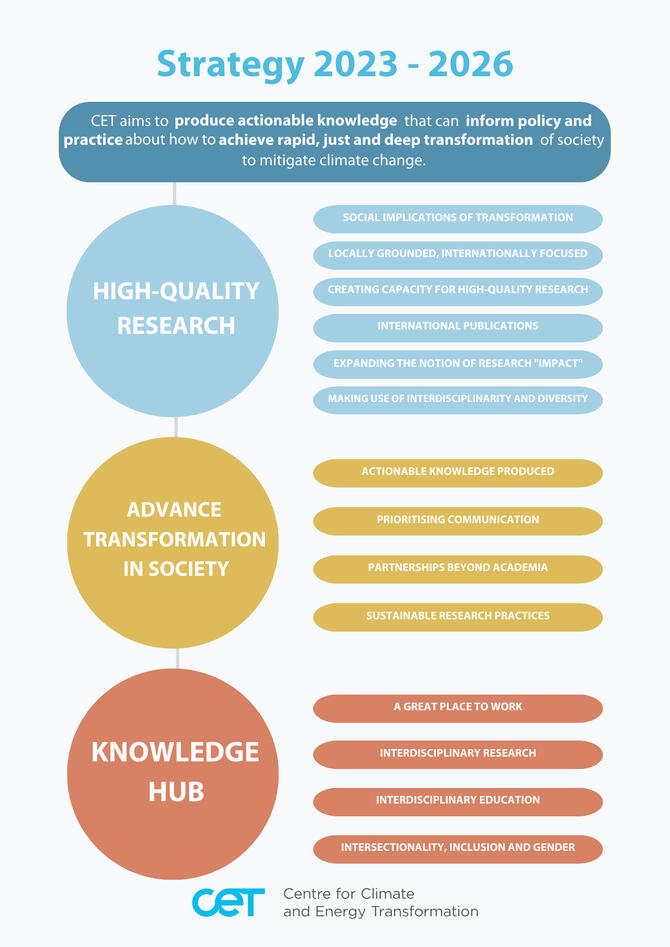Strategy 2023 - 2026

Main content
Actionable knowledge for transformation
Climate change is one of the greatest threats to life on our planet. Despite a growing focus on the problem, modern society is not currently on a path towards meeting the commitments of the Paris Agreement to limit warming to 1,5 degrees.
There is substantial knowledge concerning the behavioural changes, policies, energy infrastructures and technologies required to tackle climate change. Now is the time to prioritize action that sets fundamental change in motion.
At the Centre for Climate and Energy Transformation (CET), we think of such change as sustainability transformation. This is a deliberate process that alters the political, cultural, economic, and social characteristics of society in a way that makes us more sustainable. Transformation must be driven by a commitment to democracy and justice. As researchers, this means we must have an intentional approach to what we conduct research on, how we do that research and how we create impact.
CET aims to produce actionable knowledge that can inform policy and practice about how to achieve rapid, just and deep transformation of society to mitigate climate change.
